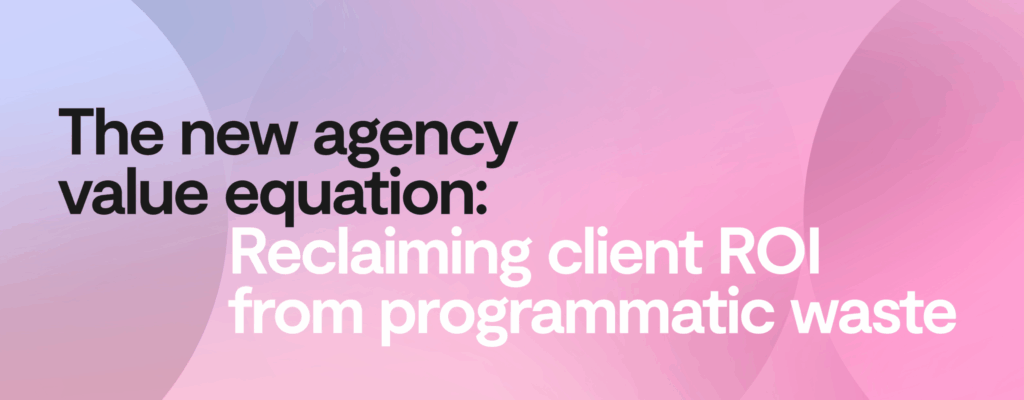- Blog
- Advertisers
Make Possible Online Summit – London Edition Highlights
Publishers, agencies and advertisers can together make possible a better advertising ecosystem for all in a post-cookie world, as executives came together at a high-level seminar hosted by data management platform Permutive. The message, they said, was in a world now more uncertain than ever, change had never been more needed. And that change had been put at the forefront by Google’s decision back in January to scrap all third party tracking cookies within two years. It’s time to recalibrate the industry. The Make Possible Summit was hosted online and took in two panels. The first, The Future of Media…

Publishers, agencies and advertisers can together make possible a better advertising ecosystem for all in a post-cookie world, as executives came together at a high-level seminar hosted by data management platform Permutive.
The message, they said, was in a world now more uncertain than ever, change had never been more needed. And that change had been put at the forefront by Google’s decision back in January to scrap all third party tracking cookies within two years. It’s time to recalibrate the industry.
The Make Possible Summit was hosted online and took in two panels. The first, The Future of Media Trading, brought together advertiser, agency and publisher in a wide-ranging debate.
The second, Publisher Data: The New Media Currency explored how publishers are moving to more sophisticated first party data strategies spanning advertising, subscriptions, editorial and more.
The future of media trading
In the Future of Media Trading, Digiday’s UK media editor Lucinda Southern quizzed Ben Walmsley, News UK’s commercial director of publishing; Alexis Faulkner, head of FAST UK at Mindshare, and Dean Robinson, programmatic and display lead at William Hill about the challenges each face in a world without third party tracking cookies.
News UK’s publishing data strategy was two-fold, said Walmsley. “For The Times, for example, the value exchange has already taken place up front through a subscription and a fairly expensive one at that. We have to be very careful what we ask for from the user…
“With The Sun also about accumulating logged in users. We’re working on how to incentivise someone to give us an email address, log-in and tell us about themselves.”
He talked too about the Ozone Project, which aims to grant scale by bringing publishers together. Identity was the most pressing issue here, and he said that in the near term shared identities were the way forward but that replicating the cookie with an alternative was not the solution in the long term.
Rebuilding the web for better
“If we were rebuilding the web today we probably wouldn’t use third party cookies for cross tracking. It started somewhere else and it’s been appropriated for a number of different reasons.”
Faulkner concurred. “For a long time, if we’re all honest, the digital landscape hasn’t been somewhere where we can work fluidly across, say, apps, in the walled gardens or out. We’ve had all the problems we’re discussing today for a long time, it’s just that this is exacerbated as the cookie reduces.”
Measurement, targeting and frequency control were the three core things her agency was focusing on. Conversations with clients centred around advising the value of the data they had.
Robinson said William Hill was reviewing all of its technology and media partners with an eye around privacy compliance. Yet he also noted that the brand could not just turn cookies off in the short term. “So many things are based around cookies that we can’t just ignore them in the meantime,” he said.
He urged publishers to work with advertisers to see how first party data could be matched between them on a shared basis. “It would be terrible if everything became siloed again.”
The need for quality media – and metrics that matter
Asked how the world should look in two years time, Walmsley said: “In a perfect state the consumer would have complete control over their data.” Identity would be controlled by the individual and not owned by a single commercial entity.
Faulkner called for a “rebalance”. “We got carried away with what we could do with programmatic. We talked a lot about one to one, which really isn’t what we should be aiming for even if it was possible,” she said. “We need to get back to what quality media looks like as well as what targeting can do.”
For Robinson, the death of the cookie gave opportunity to “simplify everything”. “Let’s use this as an opportunity to actually find a solution that suits everybody and find a more simplified way that is less fragmented.”
The new media currency
In Publisher Data: The New Media Currency, chaired by Becky Dutta, Permutive’s VP of customer success, consensus was the order of the day.
Karen Eccles, senior director, commercial innovation The Telegraph; Chris Austin, director of data and insight Conde Nast; Jo Holdaway, chief data officer ESI Media and Lucy Marchington, media director of the Financial Times all agreed that Google’s decision to phase out the cookie was good news.
Said Holdaway: “I think that this announcement may recalibrate the industry a little bit into doing things, thinking about the consumer at the end of it.”
For Austin it felt like the industry was going full circle to a place where advertising was about content. “It’s a good thing for the industry. And I think it’s a good thing for publishers to have a bit more control about those conversations.”
Eccles admitted to feeling relief when Google announced its policy because “we knew this was the right thing to do – and we knew it was coming.”
Marchington believed the move could be great for publishers. “It gives us a little more control,” she said, adding it would help marketers gain more clarity on what they were buying.
There was agreement, too, that while first party data had always been important for publishers, many had been reactive with its use. The time was now to be more strategic in how it was used. Data was not just important for the ad sales teams, but editorial teams and new product development.
More conversations were happening with advertisers and agencies in terms of leveraging their first party data, yet the sense is still of a two-speed model with early adopters and then those Eccles said were “sort of clinging on to an old way of doing something for a long time until the portcullis comes down”.
If you’d like to watch highlights from the Make Possible Online Summit, or the whole recording, you can do so here.
You may be interested in
From scale to accountability: The new agency value equation
Learn MoreThe curation revolution: Rebuilding trust and transparency in programmatic
Learn MoreKeep going, there's more to uncover.
From scale to accountability: The new agency value equation
Discover how leading agencies are rebuilding efficiency and accountability in programmatic media. Learn the 3-step blueprint to reclaim ROI, reduce waste, and deliver verifiable performance through data-enriched PMPs.
The curation revolution: Rebuilding trust and transparency in programmatic
Discover how leading agencies are rebuilding efficiency and accountability in programmatic media. Learn the 3-step blueprint to reclaim ROI, reduce waste, and deliver verifiable performance through data-enriched PMPs.
The performance paradox: Why programmatic efficiency is broken
Discover how leading agencies are rebuilding efficiency and accountability in programmatic media. Learn the 3-step blueprint to reclaim ROI, reduce waste, and deliver verifiable performance through data-enriched PMPs.
The new agency value equation: Reclaiming client ROI from programmatic waste
Discover how leading agencies are rebuilding efficiency and accountability in programmatic media. Learn the 3-step blueprint to reclaim ROI, reduce waste, and deliver verifiable performance through data-enriched PMPs.
Curation as a revenue diversification strategy: Lessons from The Arena Group
The Arena Group is finding new ways to take control of its data and revenue. Discover their powerful new approach centered on curation.
How Acxiom and Fundamental Group are solving for the Outcomes Era
Acxiom’s Ruowen Liscio and Fundamental Group’s Angus Maclaine discuss solutions for the Outcomes Era in advertising. Discover how predictive targeting, curation, and AI are delivering results in a privacy-first world.





